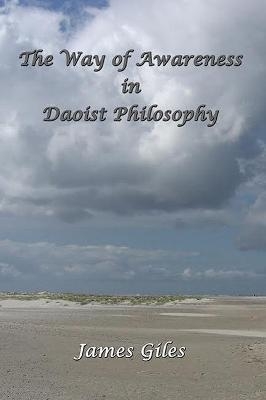
The Way of Awareness in Daoist Philosophy
Seiten
2020
Three Pines Press (Verlag)
978-1-931483-45-2 (ISBN)
Three Pines Press (Verlag)
978-1-931483-45-2 (ISBN)
Explores ancient Daoist philosophy and argues against interpretations that paint the early Daoist philosophers as mystics or cosmologists. The book claims that Dao is best understood as awareness and that Daoist concerns are primarily with the nature of human experience, meditation, and our relation to the world.
This book explores ancient Daoist philosophy and argues against interpretations that paint the early Daoist philosophers as mystics or cosmologists. It claims that Dao is best understood as awareness and that Daoist concerns are primarily with the nature of human experience, meditation, and our relation to the world. The Dao of Awareness starts by placing Daoist philosophy within the context of ancient Chinese thought. It then proceeds by critically engaging each of the major Daoist thinkers, works, or schools: Laozi, Yang Zhu, Zhuangzi, the Inward Training, Liezi, and Neo-Daoism. It concludes by pointing to ways in which Daoist thought can offer insights into contemporary Western philosophy. Throughout the book, comparisons are drawn with Western thinkers, psychological research, and Buddhist thought. The book is both a scholarly examination of Chinese and cross-cultural philosophy as well as an original work on ethics, metaphysics, and the philosophy of mind.
This book explores ancient Daoist philosophy and argues against interpretations that paint the early Daoist philosophers as mystics or cosmologists. It claims that Dao is best understood as awareness and that Daoist concerns are primarily with the nature of human experience, meditation, and our relation to the world. The Dao of Awareness starts by placing Daoist philosophy within the context of ancient Chinese thought. It then proceeds by critically engaging each of the major Daoist thinkers, works, or schools: Laozi, Yang Zhu, Zhuangzi, the Inward Training, Liezi, and Neo-Daoism. It concludes by pointing to ways in which Daoist thought can offer insights into contemporary Western philosophy. Throughout the book, comparisons are drawn with Western thinkers, psychological research, and Buddhist thought. The book is both a scholarly examination of Chinese and cross-cultural philosophy as well as an original work on ethics, metaphysics, and the philosophy of mind.
James Giles was born in Vancouver and studied at the University of British Columbia and the University of Edinburgh, where he gained a PhD in philosophy. He is an external associate professor of psychology at Roskilde University, Denmark, and tutor in philosophy at the University of Cambridge, Institute for Continuing Education. He has also taught at Universities in Australia, Canada, Hawaii, and Guam, and has traveled widely through East and Southeast Asia, and the Pacific. His published works include Sexual Essays: Gender, Desire, and Nakedness; The Nature of Sexual Desire; The Search for Personal Identity; and A Study in Phenomenalism.
| Erscheinungsdatum | 30.07.2020 |
|---|---|
| Verlagsort | Cambridge |
| Sprache | englisch |
| Maße | 140 x 216 mm |
| Themenwelt | Geisteswissenschaften ► Philosophie ► Geschichte der Philosophie |
| Geisteswissenschaften ► Philosophie ► Östliche Philosophie | |
| Geisteswissenschaften ► Philosophie ► Philosophie der Neuzeit | |
| Geisteswissenschaften ► Religion / Theologie ► Christentum | |
| Geisteswissenschaften ► Religion / Theologie ► Weitere Religionen | |
| ISBN-10 | 1-931483-45-0 / 1931483450 |
| ISBN-13 | 978-1-931483-45-2 / 9781931483452 |
| Zustand | Neuware |
| Haben Sie eine Frage zum Produkt? |
Mehr entdecken
aus dem Bereich
aus dem Bereich
die kolonialen Wurzeln der französischen Theorie
Buch | Hardcover (2024)
Matthes & Seitz Berlin (Verlag)
28,00 €
eine Geschichte der Zuversicht von Homer bis zum Klimawandel
Buch | Hardcover (2024)
C.H.Beck (Verlag)
28,00 €


